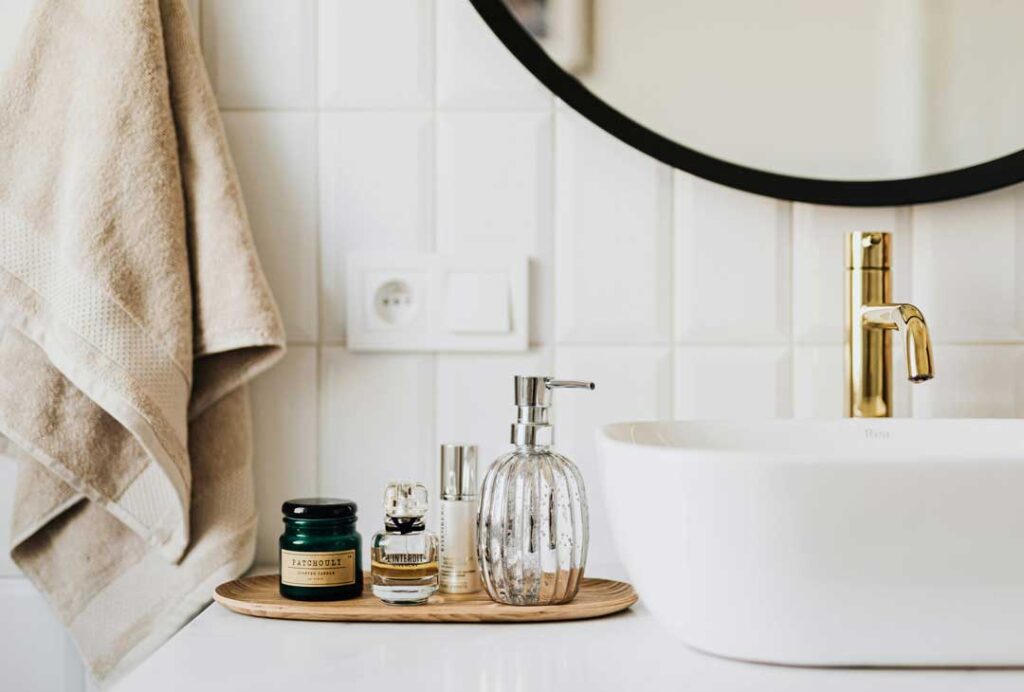Niacinamide, squalane, retinol, lipids… There’s another skincare term you should be adding to your terminology. Introducing: glycolipid. Boasting cleaner skin, a more nourished complexion and skin barrier protection, people searching for glycolipids has increased in the last 12 months and show no signs of slowing down.
So to help you navigate this skincare ingredient, we break down everything you need to know including what it is, what it does and if it’s right for you. Plus, keep reading for our favourite cleansers, moisturisers and skincare products that hero glycolipids.
What does a glycolipid cleanser do?
Bear with us – to explain what a glycolipid is takes a bit of a scientific explanation. Simply put, it is a facial or body cleanser that contains the ingredient glycolipids. It combines glycol (a sugar alcohol) and lipids (fats). These two compounds work hard together to create a gentle cleanser that cleans and hydrates the skin and skin barrier.
While glycolipid is commonly found in cleansers, it is also an ingredient used in other skincare products like moisturisers, serums, body creams and face masks.
Glycolipid cream cleanser benefits
With consistent use, you can expect to see the following benefits:
Clearer and cleansed skin
These types of cleansers will help to gently remove all the stuff you generally don’t want lingering on your skin – dirt, oil, makeup and any other impurities. The nature of a glycolipid cleanser means it can thoroughly clean your skin without stripping it of its natural oils so you’re not left with that “squeaky” feeling that can often damage your skin barrier by making it more susceptible to dryness and irritation.
A moisturised complexion
While it cleanses the skin, glycolipids in your skincare will help to keep the moisture in your skin balanced. It does this by forming almost like a barrier that prevents any water loss, resulting in a super hydrated and soft complexion.
Protection of your skin barrier
The lipids part of glycolipids is a key component that prioritises the protection of your skin’s natural barrier function. Basically what this means is as you naturally age or as things like pollution, harsh weather or even air conditioning in the summer, your skin barrier is there to protect you. A compromised barrier can result in dry, flaky skin.
What type of skin is glycolipid for?
The use of glycolipid is ideal for most skin types, however it is especially ideal for those with sensitive skin or for people suffering from eczema or rosacea. Its gentle formulation is less likely to cause any irritations and the nourishing properties are perfect for dryer skin. Skin irritations aside, using this type of cream cleanser is a good all-rounder product for anyone seeking clean yet moisturised skin.
Is glycolipid good for dry skin?
Totally. As mentioned earlier, glycolipids err on the gentler side and is super nourishing which is ideal for drier skin types. In fact, using a moisturiser with glycolipid as an ingredient will help to prevent water loss for hydrated skin.
Are glycolipids safe?
Generally speaking, glycolipids in skincare are completely safe. However, like all new products you’re introducing to your routine, be sure to do a test patch for any potential sensitivity or reactions. If you have one, speak to your dermatologist or skin therapist for their opinions, too.
What’s the difference between glycolipid cream cleanser vs squalane cleanser
The difference between these two types of cleansers will ultimately lie in the formulation. First and foremost, the key ingredient in a glycolipid cream cleanser is a glycolipid while the key ingredient in a squalene cleanser is squalene. Makes sense, right?
Depending on the brand (we compared The Ordinary Glycolipid Cream Cleanser and The Ordinary Squalane Cleanser), the glycolipid one is creamier in texture and designed to gently cleanse your skin. The squalene cleanser is more like a balm that “melts” into an oil when used over the face and also cleanses the skin but also removes makeup.
Based on the thicker texture, a squalene cleanser would be ideal for those with dryer skin and also if you’re removing heavier makeup, while the glycolipid is perfect for gentler complexions. If you’re tossing up between the two, it’s worth assessing your own skin conditions and concerns, and even giving them both a test run if you can.
The best glycolipid cream cleansers
The best glycolipid moisturisers
Other glycolipid skincare products
Women’s Health may earn commission from the links on this page, but we only feature products we believe in.

























